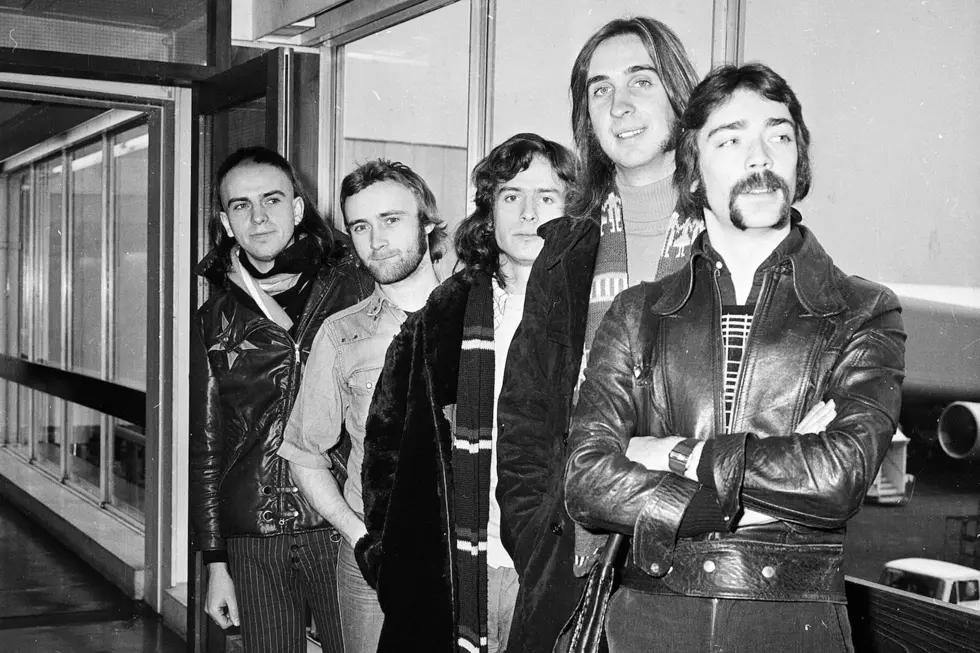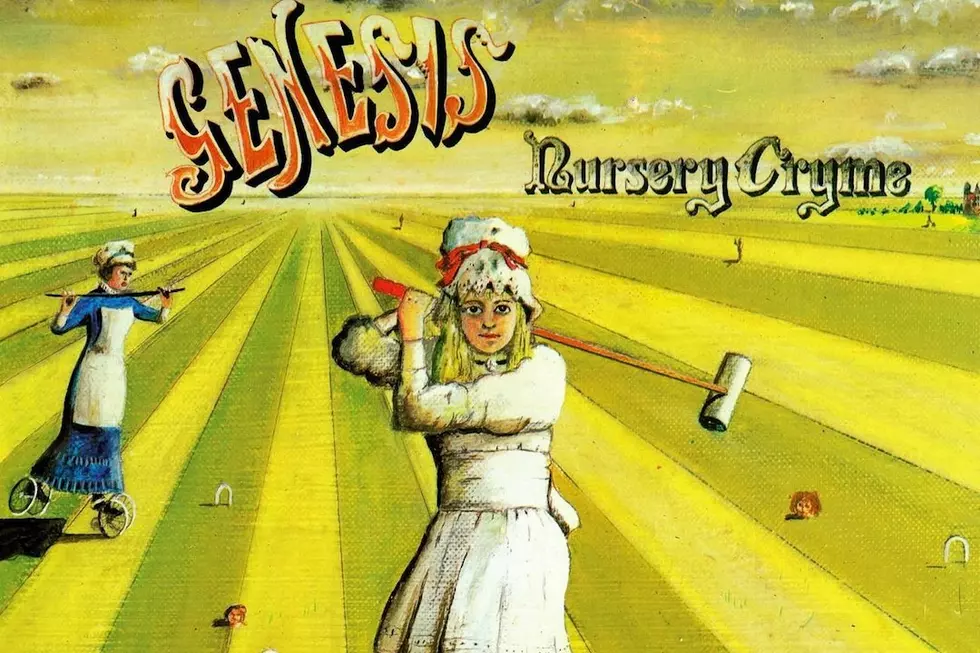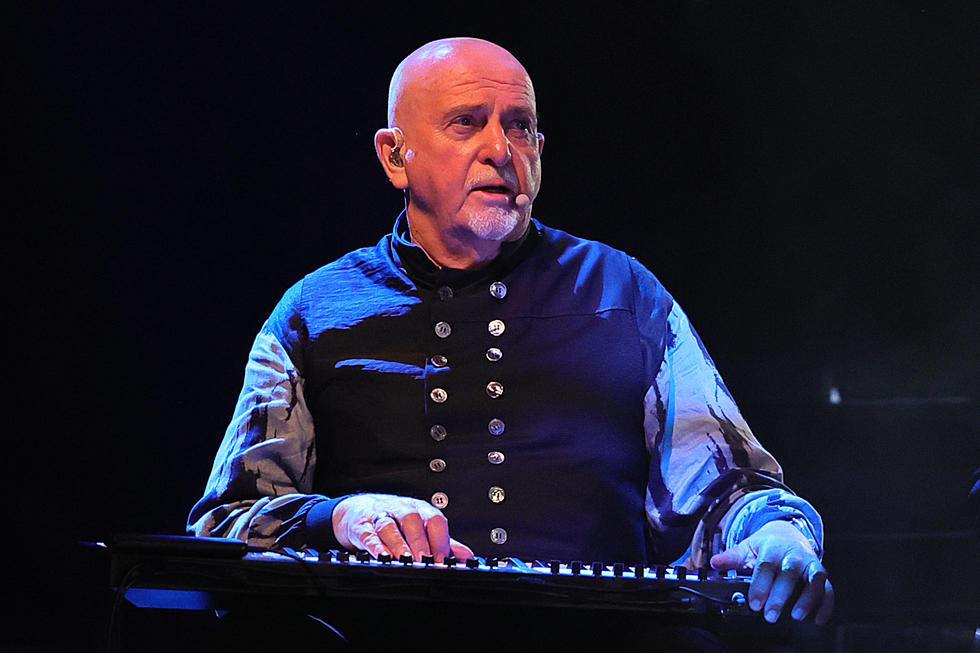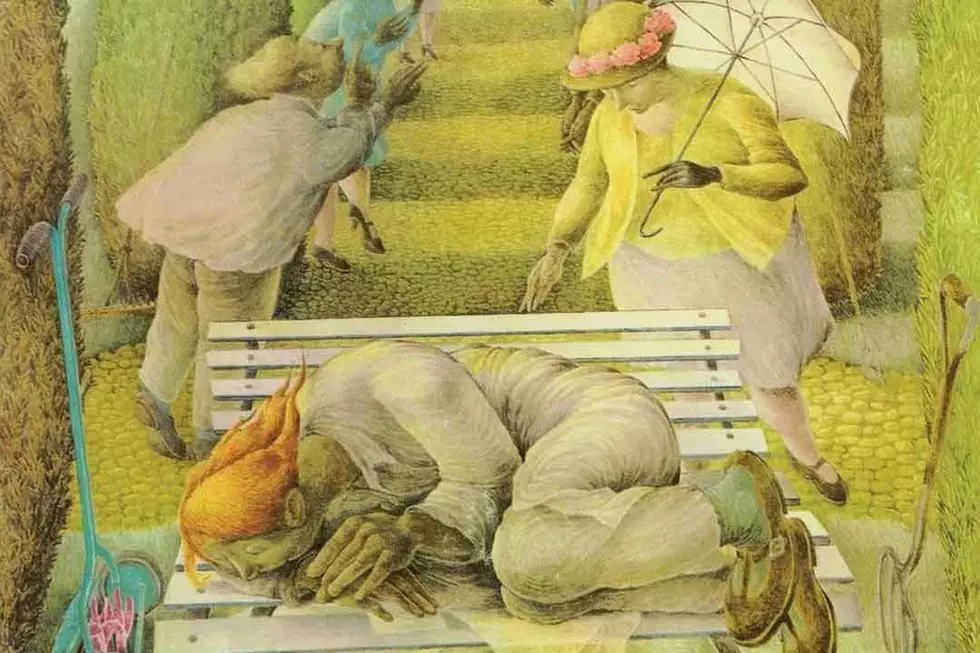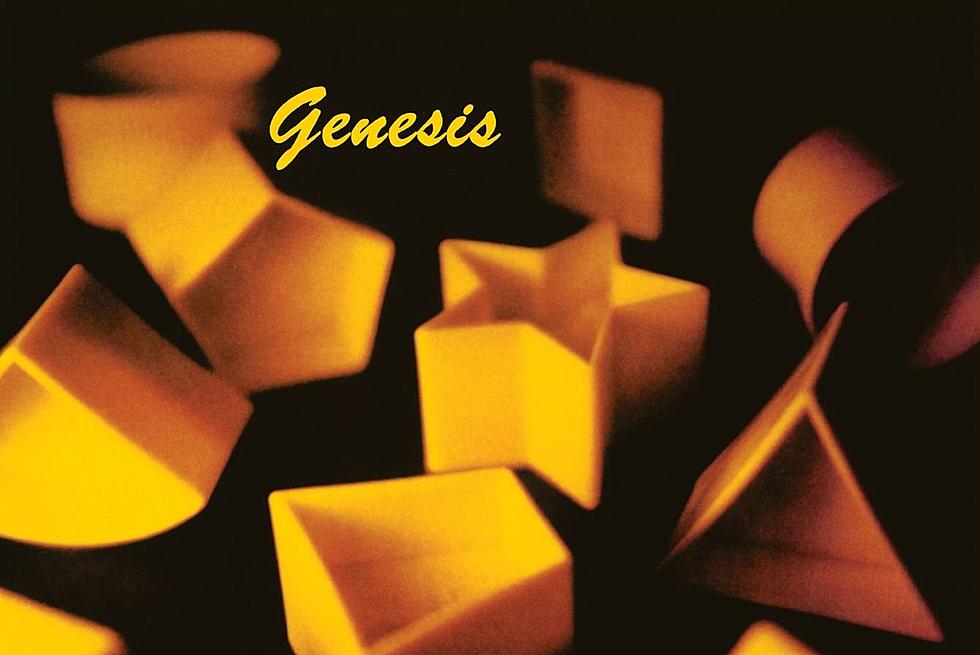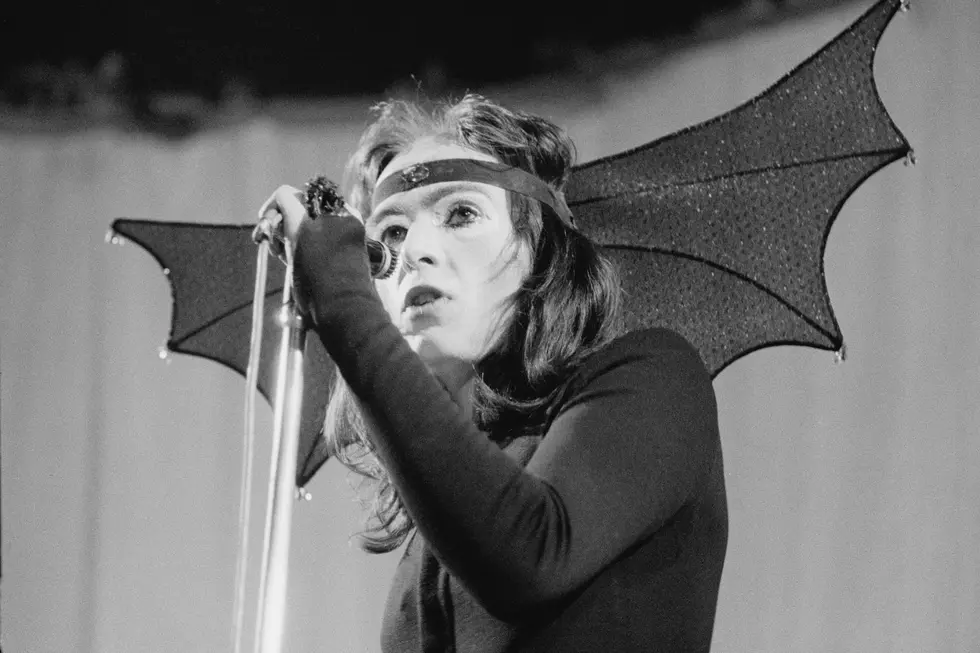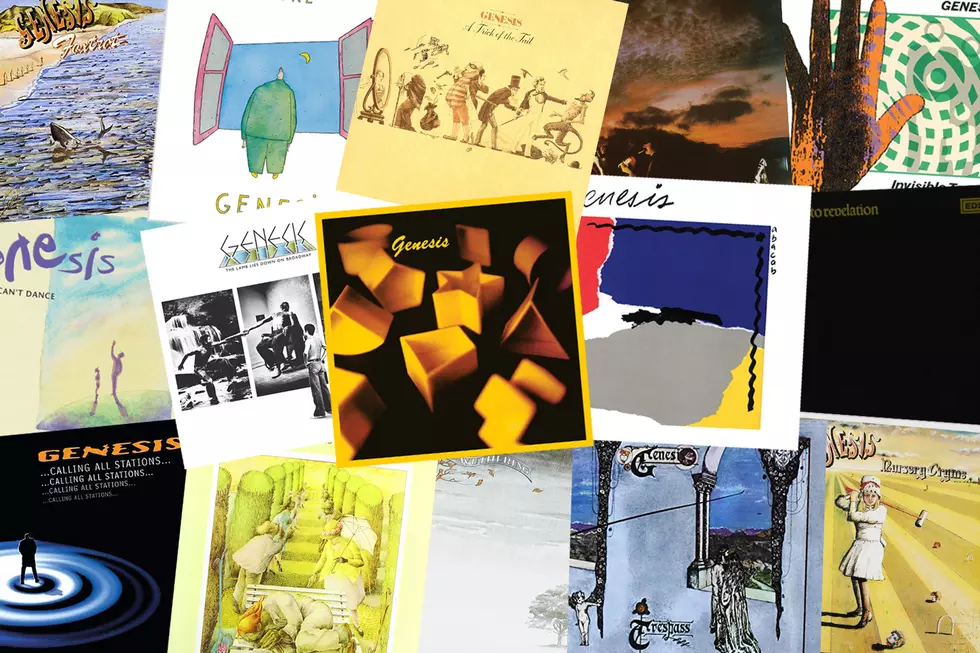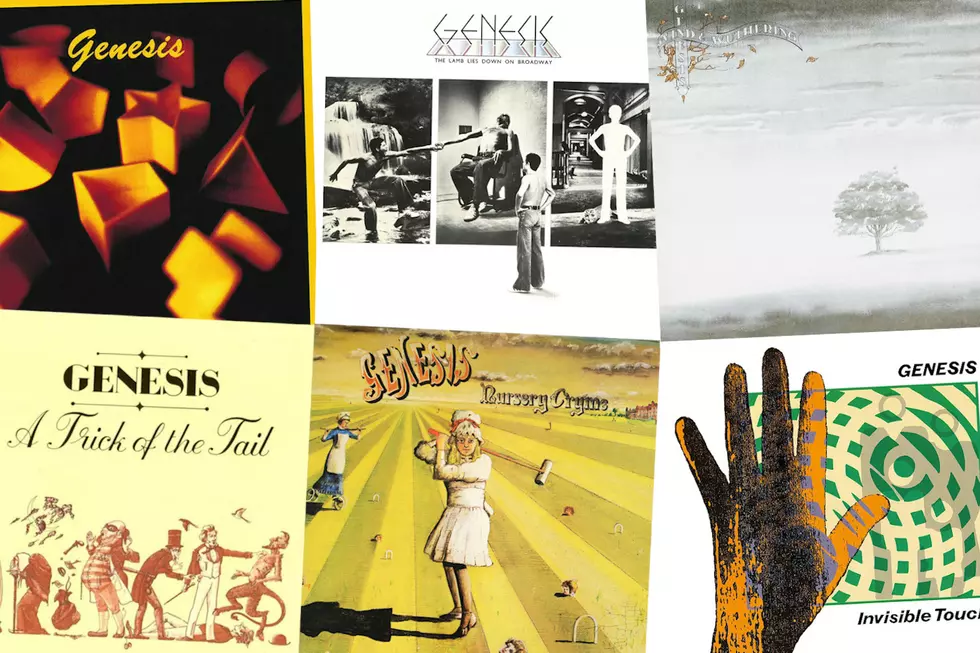
Genesis: Last Great, Last Good, First Bad Album Roundtable
Whether they were searching for a distinctive sound in the band’s early years or developing new ways to push forward following yet another lineup change, Genesis were a band constantly in flux.
From prog-rock to pop hits, concept albums to straightforward affairs, the English band continually tinkered with its formula over the course of 15 studio albums.
Much has been made of the two distinctive eras: first, when the group was fronted by Peter Gabriel, then later when Phil Collins took the lead.
Still, the influences of Mike Rutherford and Tony Banks cannot go unnoticed. Neither can the contributions from Steve Hackett, whose tenure happened to coincide with some of the group’s most hailed work.
Five UCR writers debate Genesis' last great, last good and first bad albums below.
1) What was the last great Genesis album and why?
Michael Gallucci: A Trick of the Tail - Genesis still weren't sure which direction they were heading when they made their first album without Peter Gabriel. So they made a record that sounded like a Genesis record but filtered through Phil Collins' more pop-oriented style. It recalls their past records in all the right ways - a sorta concept album, longish songs, plenty of showcases for individual members - while looking forward to their future (tighter songcraft, actual melodies to those songs).
Allison Rapp: For me, the last great album is The Lamb Lies Down on Broadway. Concept albums aren't for everyone, but The Lamb is varied and engaging enough to keep listeners involved. It's intense, dramatic, purposefully confusing at times and wonderfully weird - the perfect album to close your eyes to and imagine the story unfolding.
Rob Smith: I don’t know that they’ve made a truly great record in the Phil Collins era, with the exception of Seconds Out, which I think is one of the great live records ever made. If we’re talking the entirety of the band’s oeuvre, I’ll say the last great one was The Lamb Lies Down on Broadway. It’s an immersive experience, veering from gritty street scenes to long stretches of wonderment, with music that beckons you in and rewards repeated listening. People who dislike prog-rock can point to it as excessive, indulgent and at points impenetrable; those of us who dig it hear bold, adventuresome work with depth and keen imagination.
Ryan Reed: I'm a Genesis fanboy, so it's very hard for me to draw the line. Call me dumb if you want, but I'm going with Invisible Touch. I have to be in the right headspace for the album's plastic production, but the songs are almost uniformly well-crafted: the atmospheric stadium sing-along "Tonight Tonight Tonight," the saccharine balladry of "Throwing It All Away," the multipart adventure of "Domino," the manicured synth-pop of the title track.
Nick DeRiso: Abacab, where they pulled off a canny melding of new wave synth sounds — crunchy and stripped down, they are as piercing as any guitar riff ever was — and the emerging Genesis pop aesthetic. Unfortunately, moments like the ferocious, utterly fresh title track amounted to one last wild punch on the way down. Genesis were streaking toward the top of the charts, as Phil Collins transformed from star to superstar. This kind of inventiveness simply wouldn’t do.
2) What was the last good Genesis album and why?
Gallucci: The self-titled one from 1983 - The lead-up albums were still rooted in the band's past but were increasingly steering toward more pop territory. Genesis was really the last record where they had it both ways before Phil Collins' personal stamp, bolstered by the massive success of his solo albums, dominated 1986's Invisible Touch. There were pop songs here ("That's All"), but there was also a seven-minute, weird-ass lead single about a guy's obsession with a prostitute ("Mama").
Rapp: Wind and Wuthering. It's actually pretty impressive that Genesis were able to maintain a level of stability and forward-thinking in the aftermath of Peter Gabriel leaving. Usually when a frontman splits, especially one that strong and charismatic, the band often has a lot of trouble regaining a sense of direction, but Genesis didn't flop entirely in 1976. Maybe that's because they were still pulling inspiration from Gabriel's ideas and leaning on his style, but both Wind and Wuthering and Trick of the Tail are surprisingly steady.
Smith: Most Genesis records fall on the scale of “good” to “very good." With the exception of their debut, I don’t think there’s a straight-up bad album in the lot – not too shabby for a band that has a 50-plus-year career arc. That’s not to say they haven’t missed the mark occasionally; “Invisible Touch,” is dreadful, and the production on the Invisible Touch album vies with Peter Cetera’s Solitude Solitaire as being the most ‘80s-sounding record ever made. The self-titled 1983 album straddles the beginning of the Phil Collins hit period (Face Value, Hello I Must Be Going) and the point at which everything went supernova and he became ubiquitous on Top 40 and Album Rock radio. Take out “Illegal Alien” (which was godawful back then and has not aged well), and you have a solid album with proggish moments (“Home by the Sea,” “Second Home by the Sea”) and hits that don’t yet seem cloying and obvious (“That’s All,” “Just a Job to Do,” “Taking It All Too Hard”).
Reed: I know a lot of people hate We Can't Dance, but I love its balance of pop hooks and prog expansiveness. It's the final Collins-era Genesis album, and it should have been their last LP, period — by returning to dynamic song structures ("Driving the Last Spike," "Fading Lights," "Dreaming While You Sleep") and a more organic production style, they wound up with a satisfying farewell to their classic trio lineup.
DeRiso: Genesis, where "Home by the Sea" provided perhaps the last rickety connection to their soaring prog past. Hugh Padgham, who engineered Abacab, took over as a producer — and he would oversee the band's (and Collins') transformation into mainstream pop stars. That meant safely tucking away “Home by the Sea” behind single-ready (but far lesser) fare like “That’s All,” “Taking It All Too Hard” and the frankly abhorrent “Illegal Alien.” Along the way, Genesis – and Genesis – lost its way.
3) What was the first bad Genesis album, and why?
Gallucci: Their first one, From Genesis to Revelation. Phil Collins and Steve Hackett weren't part of the band yet - not that their presence would have helped these boring songs much. For most of the album, Genesis sound like other, better bands; there's no real identity to the band or the songs at this point. Their third album, Nursery Cryme, where it all starts to come together for the first time, sounds like a completely different band.
Rapp: I'm not necessarily sure the word "bad" accurately describes it (though it sure does describe 1997's Calling All Stations), but ... And Then There Were Three ... really does not do the band any favors whatsoever. It's very apparent that whatever leftover Peter Gabriel steam they were running on had worn out, and the shift to shorter, more pop-like songs is pretty unsettling. Anyone who was a fan of Trespass, Nursery Cryme or Selling England by the Pound was probably wondering if this was really the same band making ... And Then There Were Three ... . Of course, it wasn't the same band. Even the title implies they feel they've lost something they won't get back.
Smith: From Genesis to Revelation. They hadn’t developed sufficiently to do what they were meant to do (“Looking for Someone” and “The Knife” on Trespass gave us the first inklings of how special they were). There’s a gauzy, Moody Blues-ish sound to the record, but there’s not much here that stands out.
Reed: Genesis made only two "bad" albums, and they happened to bookend their catalog. From Genesis to Revelations is even weaker of the pair — the sound of promising but inexperienced teenagers being thrown in the deep end without a paddle. The orchestrations are cringeworthy; the psychedelic-era production is dated; and the band hadn't yet embraced its definitive prog style. There are occasional moments of quiet beauty ("Am I Very Wrong?") — just not enough to make it anything more than a footnote.
DeRiso: From Genesis to Revelation, though it feels like piling on. Created around a loose Biblical theme, their too-poppy debut is so embryonic as to be unrecognizable to anyone looking for traces of the group's career-defining successes on Selling England by the Pound. From their better-known later years, I’d say ... And Then There Were ... Three, where the just-departed Steve Hackett’s absence is so keenly felt.
4) Which Genesis album just missed being good, and why?
Gallucci: Nursery Cryme - It's the first album with Phil Collins, so it's the first album by the classic '70s lineup and the first album where all the pieces come together ... but it's still missing something. The 10-minute opener "The Musical Box" is terrific, the band's first classic song, but not much else stands out here. The follow-up album, Foxtrot, is almost a companion piece, and it's a much better record. Genesis were inching closer to greatness on Nursery Cryme; they got there the next time around.
Rapp: The album as a whole isn't outstanding, but there are a handful of tracks on We Can't Dance that are worthy. Collins' voice still sounds quite good, and the lyrics he wrote to "Since I Lost You" for Eric Clapton, who had just lost his young son, are touching. But at the same time, it does seem like by this point each of the members was too far immersed in his respective solo work to really give Genesis much attention.
Smith: Again, I think most of the band’s output falls somewhere between “good” and “very good,” but to answer this question, I’ll say Invisible Touch. Bury the title track deep into Side Two and do something about the thin production (lock Hugh Padgham out of the studio maybe), and you have a better-than-good record. Or maybe write a better song than the title track and take that awful thing off the record entirely.
Reed: This is tough. Outside of the two mentioned above, I think every Genesis album is at least in the vicinity of great. Presented with the choice of either underrating or overrating, I must choose the latter — so, I select the band's disappointing but somewhat listenable final project, Calling All Stations. Faced with the unenviable job of maintaining the Gabriel/Collins standard, vocalist Ray Wilson does a capable job — but his gruffer alt-rock style isn't always a seamless fit with his bandmates' art-rock leanings. "Congo" offers a rare memorable hook, and the eight-minute "The Dividing Line" allows the band to stretch out with a flashy instrumental section.
DeRiso: Wind & Wuthering, as a restless Hackett once again ended up out of the loop. The guitarist had just released his sometimes-better solo debut, Voyage of the Acolyte, and rouses himself here for a career-defining turn on "Eleventh Earl of Mar” but still couldn’t secure a place at the creative table. Tony Banks received writing credits on six of the nine songs on Wind & Wuthering, then Hackett was gone.
5) Do you think Genesis’ current trio lineup could make another good or great album now? What if they brought back Peter Gabriel or Steve Hackett?
Gallucci: I'm not really interested in reunion albums, especially from a band that hasn't made a truly great album in 45 years. But none of the members - including Gabriel and Hackett - have done much of note recently. So, who knows? Maybe they've each stockpiled enough good material to make a decent album among them.
Rapp: I think another good album might be possible if Gabriel and Hackett came back into the picture, but truthfully I think all the members are burned out - physically and creatively. It would be nice to see the whole band play some shows together perhaps, but I think their days of putting together a full, cohesive album that will please both their die-hard prog fans and their more pop-centered audience are probably over.
Smith: I think Collins wants to entertain people now, insomuch as he wants to do anything, so he’s willing to tour on the old songs, rather than come up with nine or 10 new ones. Adding Gabriel or Hackett doesn’t make much sense – Gabriel takes two years just to figure out which mics he wants to use, and I don’t see Hackett wanting to play Collins’ poppy ditties. There might have been a window in which a five-man reunion would have worked, but we’re at least 20 years past that point.
Reed: If Collins could still play drums (and he alone can answer that question), they could easily make a good album. Great? Probably not. It's hard to imagine the current creative dynamic between Tony Banks, now in orchestral mode, and his more pop- and rock-leaning bandmates. But Genesis hit a sweet spot in their trio era, often walking in the rehearsal room with a blank slate and banging out songs through jamming. I doubt they'll ever record again, but I hope I'm wrong. As much as I love Hackett, it wouldn't make sense to bring him back without Gabriel — even though Genesis did make two great '70s albums as a four-piece, the obvious band structures are trio and quintet. And since Gabriel hasn't even finished his follow-up to 2002's Up, the odds of him reuniting with Genesis are basically zilch. That said, even though it would be a too-many-cooks situation, I bet that album would be really interesting.
DeRiso: They absolutely should bring back Steve Hackett, since nobody seems to better understand – or possess the ability to truly celebrate – Genesis' original aesthetic. They absolutely will not. And forget about Peter Gabriel. That makes the prospect of a good or great album seem utterly impossible.
Genesis Solo Albums Ranked
More From Ultimate Classic Rock
